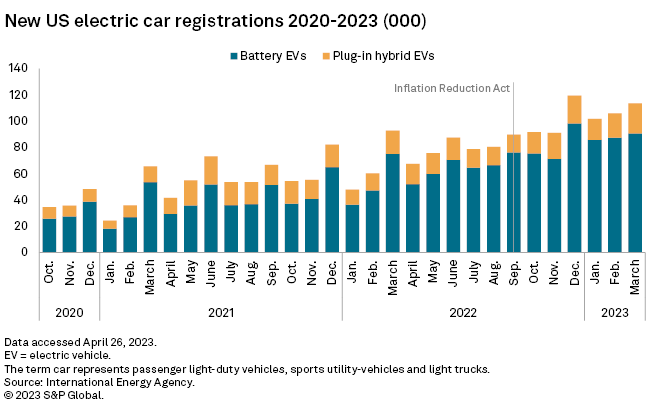S&P Global Offerings
Featured Topics
Featured Products
Events
S&P Global Offerings
Featured Topics
Featured Products
Events
S&P Global Offerings
Featured Topics
Featured Products
Events
Banking & Capital Markets
Economy & Finance
Energy Transition & Sustainability
Technology & Innovation
Podcasts & Newsletters
Banking & Capital Markets
Economy & Finance
Energy Transition & Sustainability
Technology & Innovation
Podcasts & Newsletters
S&P Global Offerings
Featured Topics
Featured Products
Events
22 Sep, 2023

By Bill Holland
The United Auto Workers' strike against the Big Three US carmakers is a preview of potential conflicts to come as society shifts away from a dependence on fossil fuels to reduce their contributions to climate change, speakers at the World Petroleum Congress said Sept. 20.
The United Auto Workers (UAW) walkout against Ford Motor Co., General Motors Co. and Stellantis NV could be the "tip of the iceberg" of dislocation for a labor force trapped between oil and gas on one side and a waning fossil fuel-powered transportation sector on the other, said RJ Johnston, executive director of Columbia University's Center on Global Energy Policy. Johnston was part of a panel called "How are Geopolitical Realities Shaping the Energy Transition" at the event in Calgary, Alberta.
"Why are we talking about this at an energy discussion?" Johnston asked rhetorically. "One of the key issues in the strike is electric vehicles: What does the shift in the US towards electric vehicle production from internal combustion engines mean for workers?
"It's like the premature retirement of the oil and gas sector while the market still needs it," Johnston said. "Do you worry that what is going to happen with the UAW is what's going happen in other parts of the world? Is that going to lead to more populism?"
Labor negotiations between automakers and the UAW have thus far failed to produce a deal that would end the strike, which began Sept. 15.

Electric vehicles, auto supply chain
Panel member Deborah Yedlin, the president and CEO of the Calgary Chamber of Commerce, said the strike was a symptom of "tectonic shifts happening everywhere" because of changing energy use.
The effects will go well beyond auto plants and electric vehicles, Yedlin said. "We don't need as many workers because we don't have as many parts, we don't need catalytic converters, we don't need mufflers," Yedlin said. "And all of a sudden, the supply chain that ... was part of the whole auto sector starts to fall apart."
Yedlin, who was the chancellor of the University of Calgary until 2022 and has decades of experience as a business columnist, said the strike demonstrates that the US needs an industrial policy to deal with the impact on the workforce of a move away from fossil fuels.
"Having said that, we know that the major auto companies are losing a lot of money to companies like Tesla," Yedlin said. "Their EV sales are not going to break even or make any money for quite a while."
Climate awareness
A major goal of the energy transition is to reduce fossil fuels' contributions to climate change. Johnston's colleague at the Center on Global Energy Policy, senior research scholar Jon Elkind, said recent weather and disasters linked to climate change were concerning, but such events will help make the case for a low-carbon future.
"There's a risk, but I also think the general public is not thick," Elkind said.
"In the United States, here we are in September, and we have had 23 severe weather events that resulted in greater than a billion dollars' worth of damages each," Elkind said. "So the public is already uneasy heading into an inconclusive future."
"The foundation is changing, right?" Elkind said. "There is a lot of that ahead. There's no way around it."
S&P Global Commodity Insights produces content for distribution on S&P Capital IQ Pro.
